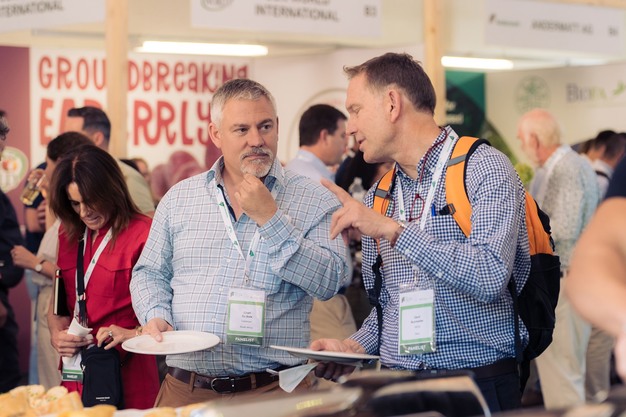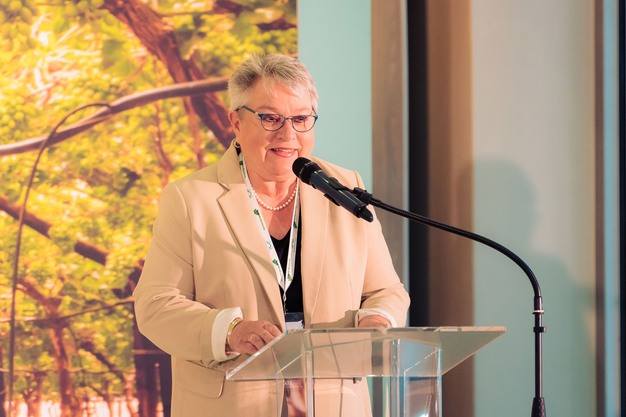The tenth international table grape symposium was opened by the Western Cape's deputy director-general of provincial agriculture Ilse Trautmann, herself a table grape researcher.
Over five hundred delegates have gathered in Somerset West or virtually for presentations elaborating the symposium's topic: where science meets industry.
In his opening address, Schalk Reynolds of the South African Society of Oenology and Viticulture, told attendees: “Climate change will be one of the big things going forward."
Incidentally, Trautmann remarked, she was on her way to COP-28 in Dubai at the end of the week to represent the Western Cape, a province with a Mediterranean climate, in the signing of a cooperation agreement with Mediterranean regions worldwide on climate mitigation.
The Western Cape will in future doubtless feel the effects of a changing climate, she maintained.
 Charl Dubois, commercial executive at Capespan, in conversation with Gerd Burmester of VECS in Peru (photos by Bradley Urion)
Charl Dubois, commercial executive at Capespan, in conversation with Gerd Burmester of VECS in Peru (photos by Bradley Urion)
23,000 new jobs for every 5% export increase
Trautmann provided the symposium with a snapshot of the fruit industry in South Africa: 35% of South African exports are fresh fruit.
Of the fruit grown in South Africa, 65% is exported and of that number, over 55% hails from the Western Cape, Trautmann proudly pointed out.
South Africa is the fourth largest table grape exporter in the world and contributes a sizeable amount to the country's export earnings, exporting 63 million 4.5kg cartons last year, two-thirds going to the European Union.
South African grape exports totalling 73 million cartons of grapes are forecast for the new season.
 Ilse Trautmann of the Western Cape's department of agriculture
Ilse Trautmann of the Western Cape's department of agriculture
She conceded that South Africa's ports were a major problem and that port capacity had not kept pace with the growth in fruit industry.
International delegates would have noticed the extent of poverty around Cape Town's international airport.
Growth for jobs - G4J - is the first priority of the Western Cape government, Trautmann said.
"In the Cape 430,000 people work in agriculture. For every 5% increase in exports, we can add 23,000 jobs – that’s what we want to do in the Western Cape and in South Africa."
